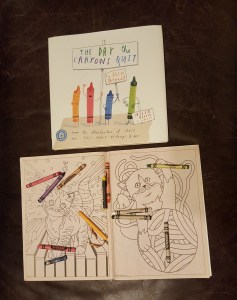There Still Are Buffalo Book Review
 Ann Nolan Clark’s children’s book, There Still Are Buffalo is a beautiful example of narrative poetry. The tale of a buffalo bull from birth rolls off the tongue if read aloud. Indeed, even reading the story silently, the words sing inside one’s head.
Ann Nolan Clark’s children’s book, There Still Are Buffalo is a beautiful example of narrative poetry. The tale of a buffalo bull from birth rolls off the tongue if read aloud. Indeed, even reading the story silently, the words sing inside one’s head.
Clark captures an era of long-ago. There Still Are Buffalo, first published in 1942, describes the life of a buffalo and his herd from the time perspective of roaming wild buffalo. But the story references an attempt by man to corral the beasts. This provides a time stamp.
The story opens in the Dakotas. The Sioux have set aside land for the buffalo. Wide open plains provide space for the buffalo to roam as they have from the beginning. But there is little mention of these human stewards for this is a story of the giant beast which at one time dominated the open prairie.
Life Cycle of the Buffalo
The second stanza begins the tale of one special bull calf. Clark’s words describe the first hours of life. The protective mother standing guard over her bull calf until he is able to stand and walk. The baby joins the herd just a few days after birth.
There Still Are Buffalo describes both the workings of the herd and the individual life of this new calf. The stanzas progress through the life cycle. But they also provide a naturalist look at nature and her dangers. So, the reader learns much from this book.
Ann Nolan Clark
The life of Ann Nolan Clark is as interesting as her story. She was born in the late 1800’s in the small New Mexico town of Las Vegas. However, once, Las Vegas was one of the larger cities of the old west. Since it was a stop on The Santa Fe Trail, it was a rival of places such as Denver and Dodge City.
The city history seems to have influenced Clark’s outlook on diversity of cultures. In some ways she may have lived a hundred years before her time. Her life work shows her appreciation for many cultures. While There Still Are Buffalo alludes to Native Americans, other works by Clark share cultural tales from Central and South America as well as Southeast Asia.
Her writing is incredible. I strongly recommend There Still Are Buffalo. But I encourage you to find copies of her other stories as well. This is a great American writer.
 The Mitford Murders
The Mitford Murders

 My community holds book sales twice a year. I try not to miss these sales. Each book sale benefits the local library. Naturally the books come from a wide range of sources. Many people buy books and then donate them. Some are even current releases.
My community holds book sales twice a year. I try not to miss these sales. Each book sale benefits the local library. Naturally the books come from a wide range of sources. Many people buy books and then donate them. Some are even current releases.
 Reduce, reuse, recycle is one slogan I grew up with. But Shia Su takes this mantra to a whole new level with her book Zero Waste: Simple Life Hacks To Drastically Reduce Your Trash. The cover of the book shows a glass jar, approximately quart size with the trash she generated in a year. This is truly cutting waste to zero.
Reduce, reuse, recycle is one slogan I grew up with. But Shia Su takes this mantra to a whole new level with her book Zero Waste: Simple Life Hacks To Drastically Reduce Your Trash. The cover of the book shows a glass jar, approximately quart size with the trash she generated in a year. This is truly cutting waste to zero.
 Roseanne Montillo offers a close look at the first female track and field Olympians in her book Fire on the Track. Much of the history focuses on Betty Robinson. But detailed backgrounds of Babe Didrikson, Stella Walsh and Helen Stephens are also outlined. Participants in the Olympic games of 1928, 1932 and 1936 are the focus of the work.
Roseanne Montillo offers a close look at the first female track and field Olympians in her book Fire on the Track. Much of the history focuses on Betty Robinson. But detailed backgrounds of Babe Didrikson, Stella Walsh and Helen Stephens are also outlined. Participants in the Olympic games of 1928, 1932 and 1936 are the focus of the work.